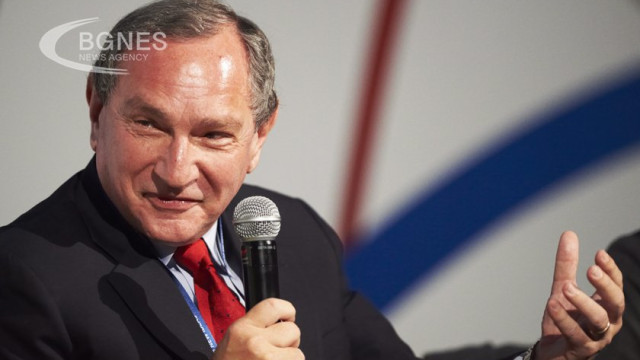I've written a lot about socioeconomic cycles, but much less about institutional cycles, specifically how the fourth institutional cycle in American history will come about. Now, however, some questions from the new cycle are beginning to take shape - and during a fishing dispute.
In The Storm Before the Calm, I summarized the institutional cycles as follows: "The first cycle created the federal government, the second reformulated the federal government's relationship with the states, the third cycle redefined the federal government's relationship to the economy and society, and the fourth cycle will redefine the federal government's relationship with itself. By that I mean it will redefine how the federal government sets priorities, how it focuses on achieving those priorities, and how it reports. That sounds like a relatively small change. In fact, it's as radical as change after the Second World War".
The third institutional cycle arose after World War II, which was won by the experts who constructed bombers, landing craft, and atomic bombs. The heroes were the men who fought, but the experts were the victors. President Franklin Delano Roosevelt used experts in a wide range of tasks that had previously been assigned to merely intelligent people. Knowing the rare has become key.
During and after the war, the federal government organized itself around subject matter expertise. However, the inherent weakness of expertise is that it is narrowly focused. She may solve a problem without understanding the wider implications of the decision. The COVID-19 pandemic is a great example of this: It required medical expertise, but at the forefront of the search for solutions were medical experts focused on medical solutions. They did not consider the consequences of their decisions, such as the delayed social development of children who cannot play with other children at an age when it is crucial for their learning and experience.
The inclusion of experts in the federal system defined the problem too narrowly and wrongly. There was no one in authority standing back to see the unintended consequences. There was rarely any control over the experts, who saw only the problem they were trained to solve and not the implications of the plan that needed changing.
It seemed to me that the institutional structure created 80 years ago during the Second World War had solved many problems, but was increasingly unable to cope with the complex realities it faced now. In other words, the experts successfully focused on the things they knew without any "wise man" looking at the cost of the decision, let alone having the power to do something about it. The landscape was littered with decisions devoid of common sense, and the sages who had founded the nation were excluded from what was being considered.
Institutional cycles have been going on for 80 years and now the time has come for transformation - 80 years after 1945. There were still no signs of transformation until I read about a fisheries dispute currently before the Supreme Court that could to overturn the way federal agencies and regulations operate.
When the US Congress passes a law, a senior official appoints an expert to run it. Over the years, the decisions of these experts have been almost absolute, although they have not always understood the problem. A recent law required herring fishermen to observe and report various aspects of the fishery. The expert ruled that the fishermen must also pay for the expert-ordered monitoring, even though the cost of complying with that order would cripple the fishermen's business.
At a time when doctors recommend eating fish instead of red meat for good health, the cost of monitoring is ruining one fisherman and affecting many others. There were health and economic dimensions that the appointed expert did not grasp. The expert saw the need for monitoring and chose a path that would make it easier to cover the costs of monitoring. But this time it put fishermen in a financial crisis, which meant they might not be able to produce anything for monitoring. The measure and the impossibility of reformation were exposed. The expert and his staff may have had a good idea, but they weren't trained enough to understand its implications.
The point of the story is that the case went to the Supreme Court arguing that the expert could not create a law that included a penalty because that was the sole prerogative of the courts and that such decisions had to go through the federal legal system.
This position was attacked as threatening the ability of state experts to manage the activities of citizens. The argument I would make is that a government run by experts fails to govern properly because it is unable to understand the full impact of its orders. This is part of institutional change, but the heart of the matter is the value of oversight by people who do not share the limited knowledge of experts, are free from tunnel vision, and are sensitive to certain consequences. I wonder if federal judges are the right choice, but they've probably been told by their doctors to eat more fish and, knowing it's important, will have the power to enforce order in the system. It's not about expertise. He is in supervision.
As for me, I see the beginning of the fourth institutional cycle that adheres to my model. It hasn't happened yet, but I think it's coming. And that's my problem. The experts believe that they are right in everything./BGNES
George Friedman, "Geopolitical Futures."







